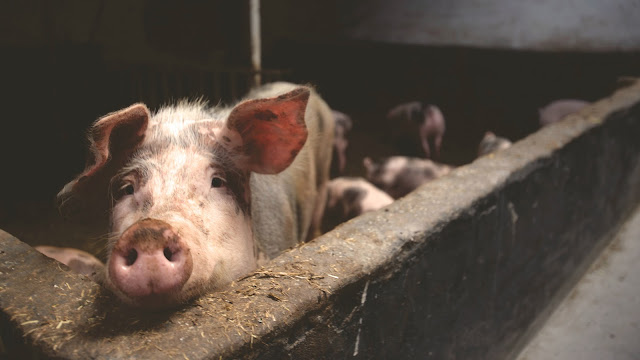In recent years, the "farm-to-table" movement has become popular among many health-conscious and eco-friendly individuals. Eating locally grown, organic food is a way to support small, family farms and reduce one's environmental footprint.
Find farm-to-table cookbooks from Amazon >>
But is buying meat from these small farms more ethical than larger industrial farms? This blog post will explore the ethical implications of eating meat from small family farms and ask whether the farm-to-table movement is more moral than buying conventionally-produced meat.
What is Farm-to-Table?
Farm-to-table is a term that describes food that is grown and harvested on small family farms and then served at restaurants or in homes. This way of eating has become increasingly popular as it offers ethical and sustainable alternatives to traditional factory farming.
The idea behind farm-to-table is that food should be grown, harvested, and eaten as close to its source as possible. By cutting out the middlemen who process and distribute food, this method of eating helps to reduce environmental impact and support local farmers.
As well as reducing environmental impacts, farm-to-table supports ethical animal welfare practices, which means animals are raised in natural and humane conditions.
Also, farm-to-table is a way of eating that focuses on sustainability, ethical production, and freshness. It encourages people to eat seasonal produce and buy directly from local farmers to reduce their carbon footprint while supporting their local economy.
Find farm-to-table cookbooks from Amazon >>
The Ethical Implications of Farm-to-Table
Farm-to-table is a model that seeks to bridge the gap between farmers and consumers, allowing them to purchase food directly from local farms. While this model has many benefits, it is vital to consider the ethical implications of this practice.
For many people, one of the primary motivations for choosing farm-to-table is that they feel it is more ethical than purchasing food from large-scale farms or grocery stores.
Small family farms often prioritize humane animal care and avoid using pesticides, hormones, and other potentially harmful chemicals. Additionally, by purchasing directly from local farmers, customers can support small business owners and help their local economy.
However, there are some ethical concerns with farm-to-table as well. One of the biggest is that small family farms often need to produce a different volume of food than larger farms. This means that they may need help to meet the demand for food, leading to higher prices and fewer people having access to ethically sourced food.
Buying directly from farmers also means that customers may be getting a different level of oversight from government agencies than from large-scale farms, meaning there are potential food safety risks.
Also, there is no simple answer regarding the ethical implications of farm-to-table. While it does provide many benefits, it is crucial to consider both the pros and cons before deciding whether or not it is the right choice for you.
Find farm-to-table cookbooks from Amazon >>
The Pros and Cons of Farm-to-Table
Farm-to-table approach's proponents suggest that eating locally is more sustainable, ethical, and healthy than purchasing food from large-scale industrial producers. But is this true? Let's explore the pros and cons of farm-to-table.
The Pros of Farm-to-Table:
- When you purchase food directly from a small family farm, you can have greater confidence in the quality and origin of your food.
- Small family farms tend to be more transparent and less likely to employ questionable production methods.
- Purchasing food directly from local farmers supports a smaller carbon footprint, as it does not require long-distance transportation or shipping of food.
- Local farmers practice organic farming methods and care for their animals better than industrial operations, leading to healthier produce and meats free from antibiotics and hormones.
The Cons of Farm-to-Table:
- One potential downside to farm-to-table eating is the price tag. Local farmers typically charge higher prices for their produce and meats than industrial producers, making farm-to-table eating only available to those with higher incomes.
- It may be challenging to find locally sourced options depending on the type of food you are looking for. For example, many small family farms may offer something other than specialty items such as seafood or exotic fruits and vegetables.
- Some consumers may be concerned about the ethical implications of eating meat, which small family farms often produce.
Ultimately, it's up to you to decide if the pros outweigh the cons regarding the farm-to-table movement. Eating locally has many benefits but may only be feasible for some. Consider your budget and your values before making your decision!
Find farm-to-table cookbooks from Amazon >>
